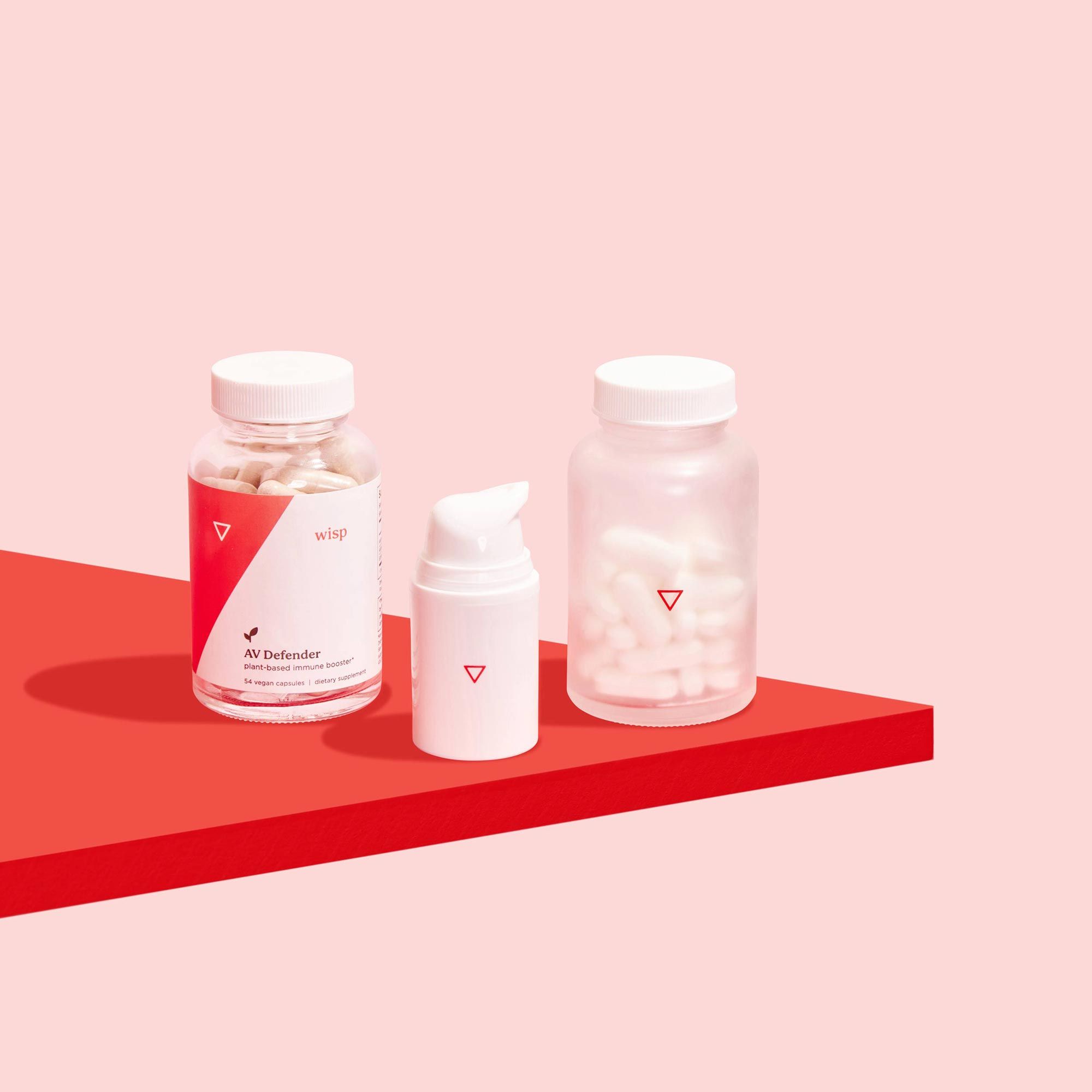
Having The STD Talk:
Finding Closure Through
Sexual Disclosure
By Olivia Ware
September 3, 2020
Having an STD can be extremely uncomfortable with all the burning, itching and tingling—oh my! Yet, beyond the physical symptoms associated with sexually transmitted infections, another source of discomfort lurks beneath the surface that all too often goes unspoken:
How Do I Tell a New Partner I Have an STD?
Talking about that kind of burn in the bedroom sounds scary—not sexy. The lack of conversation around how to discuss sexual health can feel silencing to those of us who bear a diagnosis, particularly among STDs with no cure—ahem, looking at you herpes simplex virus. The so-called STD “stigma” is intensified by the fact that many individuals who acquire STIs are asymptomatic (don’t show symptoms), and therefore don’t fully recognize their role in transmission.
So, how does one bring up their STD diagnosis with someone they’d like to have sex with?
Where to Start?
When I was first diagnosed with HSV-2, I was twenty-two and severely lacking in sexual health education. I grew up in an abstinence-only states where receiving any kind of sex education in school apart from being told not to do it was against the law. Not only was this approach ineffective at preparing me for the real world, it helped create a sense of shame and secrecy around the topic of sex during my ealry years. Not talking about sex doesn’t magically inspire safe and responsible choices. And the same goes for STDs. Instead of feeling prepared to discuss a safer approach to sex, I only knew STDs to be the punchline of jokes. Before sharing a drink with a classmate, a friend may chuckle, “You better not have herpes!” Sound familiar?
Sitting in the stirrups of the exam table the day the doctor broke the news, my herpes diagnosis felt like a jury sentencing. Before considering what the diagnosis meant for my own health and wellbeing, my mind flashed to what others would think. Who would want to sleep with me now? Was my dating life dead on arrival? I wanted to hide. It felt as though my body had betrayed me.
Though common, these initial thoughts were rooted in shame. Fear (and stigma) often stems from a lack of understanding. The first step in learning how to talk about STDs is to arm yourself with information. Rather than succumbing to hearsay, do the research. Contacting a medical provider to get advice and field the many questions that accompany a new STD diagnosis. Information is powerful. Learning the facts along with possible courses of treatment is a critical step in living with HSV-1 or HSV-2.
Despite an estimated 3 out of 4 Americans living with herpes, I didn’t personally know anyone who had it—or more likely, no one who talked about it. Many people have no idea they carry the virus since herpes is not included in standard STD screenings and can be spread even when no visible symptoms are present. I will likely never know exactly when, how, or from whom I contracted herpes. However, knowing that I have it means I can better protect others and live a healthier, happier life.
So How Do You Talk About Having an STD with a Current or Potential Partner?
Disclosing to new or potential partners begins with trading in any trace of self-inflicted shame for self-acceptance. Remember that old adage about having to love yourself before others can love you? It applies to STDs too.
There may never be a perfect way to disclose your status to a partner, but practice will make doing so feel a whole lot more comfortable. Shame thrives in secrecy. Opening up does wonders for shedding stigma. Talking about my experience with HSV-2 has never been as scary as imagining how the conversation may go in my head. Agonizing is almost always more painful than taking the action itself.
If sharing the news with a potential bedmate still feels too overwhelming, start by practicing with a trusted friend, family member, or therapist. Sharing in a supportive and judgment-free environment can boost your confidence and provide a template for future conversations. I have also found that reading about other people’s experiences keeps me from feeling alone.
That First Time Feeling
Ok, so practice helps ease the tension, but what about disclosing for the first time after being diagnosed with an STD? The first time I disclosed to a new partner, I was petrified. Our date got off to a good start, and soon I found myself in their entryway—trembling with anxiety. I knew that things couldn’t go much further without having the conversation I’d been rehearsing all this time in my head. My voice came out a shaky whisper. I didn’t feel sexy or powerful. I was apologetic. Sex is a vulnerable act, but talking about it beforehand? It felt…well, naked.
Once my status was out in the open, I was flooded with relief. My date was understanding. Even if they had freaked out, it would have been okay. How someone reacts is largely out of my control, but knowing my status means it is my job to disclose. It is better to establish compatibility (or lack thereof) upfront than for things to get messy after tangling in the sheets.
Does Everyone Need to Know?
Well no, not everyone. I don’t hand out copies of my medical chart over drinks on the first date. However, anyone I’m planning to engage with sexually deserves to have all the information beforehand. Talking is a fairly intimate prelude to physical intimacy. Having a conversation about sexual health can open up the lines of communication around topics of boundaries, pleasure, and preferences. Sex is an act of trust. It is good to know exactly what you are getting into. I know I would have appreciated a fair warning before contracting HSV-2. Now, to help take the sting out of sharing my sexual health history with new partners, I always:
Research: Get the facts and seek medical advice. Remember, knowledge is power. Don’t internalize any offhand comments from the media or that group of bros talking loudly over shots at the bar. With so little mainstream understanding out there, you are better served looking to a credible source, like the CDC, for clear answers (and some harrowing statistics about the prevalence of STDs).
Practice: Sit down with a trusted friend, family member, or therapist and let it out. It is funny how once spoken, much of the residual shame you feel leaves your body forever. The more you talk about it, the easier it will be. You may even help someone else who’s been keeping a painful secret.
Follow the Golden Rule: Treat others how you would like to be treated. Regardless of whether it is a one night stand or something more, practice open and honest communication about sexual health. All parties benefit from clarity.
Building Intimacy through Dialogue
Living with HSV-2 does not define my sex life. It is merely a footnote in my story that helps me to better understand and care for my body. These days if I experience an outbreak it’s a good indicator that something is off-balance—stress levels, diet, and poor sleep are common triggers. Understanding how herpes affects my body allows me to become more comfortable talking about it. Experience is the best teacher.
Owning my sexual health is empowering. My experience with HSV-2 has given me greater self-assurance in using my voice to advocate for my body. It has also taught me how to listen to other people’s needs and be a more supportive partner. I have learned that practicing intentional dialogue prior to engaging in physical intimacy can open up other channels of communication, leading to more clarity around preferences and consent practices. Herpes is not a deal-breaker, but it can be a conversation starter. That is something worth talking about.
Get STD Treatment Online

Valacyclovir & Acyclovir For HSV-2
Starting at $10/ month
Prescription antiviral pills used to prevent & treat outbreaks

AV Defender Herbal Supplement | HSV-2
Starting at $27
This natural immunity booster supports key areas of the body to help reduce the frequency of outbreaks.

Lips & Privates Trio | HSV-2
Starting at $45
Bundle Valacyclovir & Acyclovir For HSV-1 & HSV-2, Acyclovir 10% Topical Cream, and All-Natural AV Herbals to treat & prevent outbreaks.

